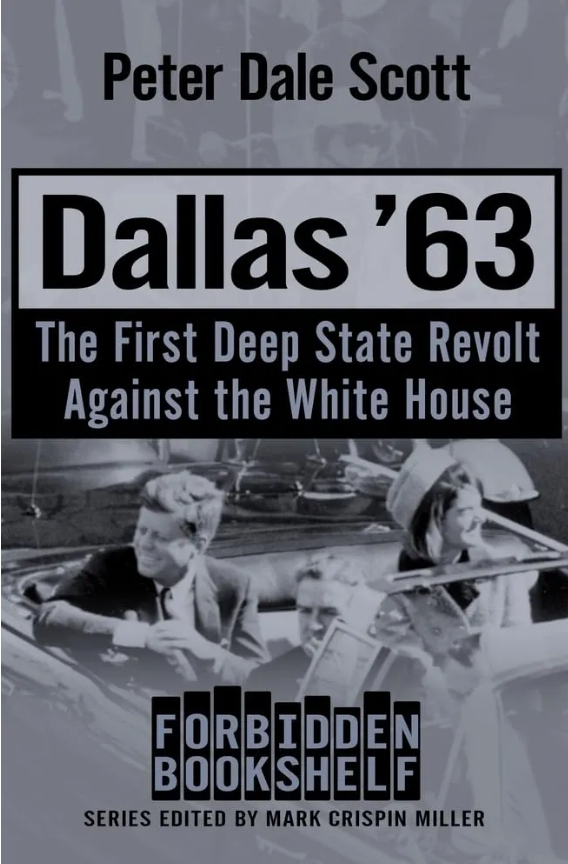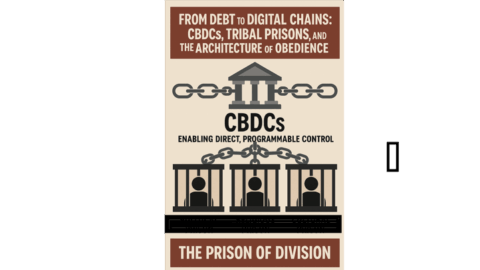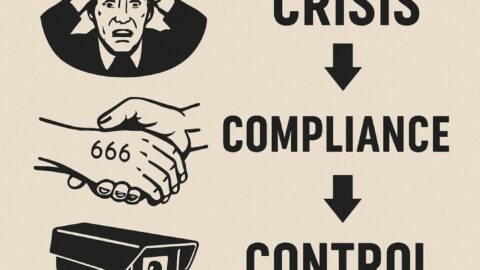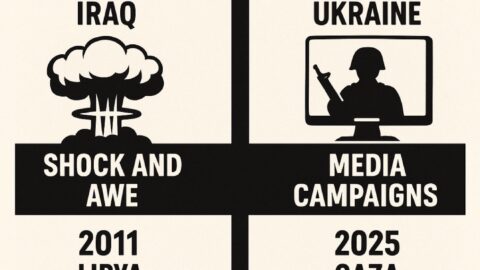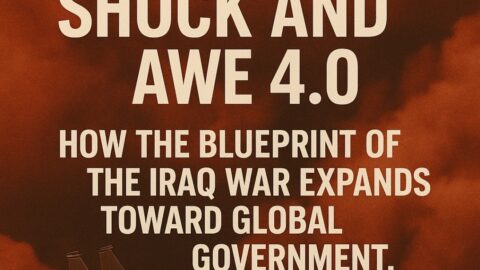“Dallas ’63: The First Deep State Revolt Against the White House” by Peter Dale Scott is a compelling examination of the assassination of President John F. Kennedy on November 22, 1963, and its profound implications for American democracy. Scott, a former Canadian diplomat, professor, and poet, is known for his work on “deep politics,” a term he coined to describe the hidden, systemic forces that shape political events beyond the visible, public sphere.
In this book, Scott argues that Kennedy’s assassination was not the work of a lone gunman, as the Warren Commission concluded, but rather a coup d’état orchestrated by elements within the U.S. government and intelligence community—a “deep state” that sought to preserve its power and interests against perceived threats posed by Kennedy’s policies.
Key Themes and Arguments:
- The Concept of the Deep State:
- Scott introduces the idea of the “deep state” as a hidden network of power within the U.S. government, composed of unelected officials, intelligence agencies, military leaders, and private sector actors who operate beyond the oversight of elected representatives. He argues that this shadowy network wields significant influence over U.S. policy and acts to protect its own interests, even if it means undermining or overthrowing elected officials.
- The assassination of JFK, Scott contends, was the first “revolt” by this deep state against a sitting president, motivated by a perceived threat to their agenda.
- Kennedy’s Foreign Policy Challenges:
- Scott details how Kennedy’s foreign policy decisions put him at odds with powerful factions within the U.S. government, particularly the CIA and the Pentagon. He highlights several key areas where Kennedy’s actions were seen as threats to entrenched interests:
- Cuban Policy: Kennedy’s handling of the Cuban Missile Crisis and his attempts to establish backchannel negotiations with Fidel Castro infuriated anti-Castro elements within the CIA and the Cuban exile community, who felt betrayed by his reluctance to invade Cuba after the Bay of Pigs fiasco.
- Vietnam: Kennedy was increasingly skeptical of U.S. military involvement in Vietnam and had begun to implement plans to withdraw American troops. This policy shift alarmed military leaders and defense contractors who saw Vietnam as a crucial battleground in the Cold War.
- Relations with the Soviet Union: Kennedy’s pursuit of détente with the Soviet Union and efforts to establish a nuclear test ban treaty were viewed with suspicion by hardliners in the military-industrial complex who were invested in maintaining a confrontational stance against the USSR.
- Scott details how Kennedy’s foreign policy decisions put him at odds with powerful factions within the U.S. government, particularly the CIA and the Pentagon. He highlights several key areas where Kennedy’s actions were seen as threats to entrenched interests:
- The Role of the CIA and Intelligence Community:
- Scott examines the role of the CIA and other intelligence agencies in orchestrating the events leading up to and following Kennedy’s assassination. He suggests that the CIA, in particular, had a deep-seated animosity toward Kennedy, stemming from his perceived lack of support during the Bay of Pigs invasion and his subsequent attempts to curtail the agency’s power.
- He also delves into the connections between key CIA officials, anti-Castro Cubans, organized crime figures, and right-wing extremists, arguing that these groups had both the motive and the means to carry out a plot against Kennedy.
- The Dallas Connection:
- Scott focuses heavily on Dallas as the site of the assassination and a hub of right-wing political activity. He points to the involvement of local political and business elites who were vehemently opposed to Kennedy’s civil rights agenda and viewed his presidency as a threat to their interests.
- The book details the suspicious activities of individuals like Jack Ruby, who killed alleged assassin Lee Harvey Oswald, and their connections to organized crime and intelligence operatives, further complicating the narrative of a lone gunman.
- The Media and Cover-Up:
- Scott argues that there was a deliberate cover-up by both the U.S. government and mainstream media to suppress evidence that contradicted the official narrative. He cites examples of how crucial witnesses were ignored or intimidated, evidence was tampered with or destroyed, and dissenting voices were marginalized.
- He contends that the Warren Commission, established to investigate the assassination, was compromised from the start, with several members having close ties to intelligence agencies and the military.
- Deep State Power and Covert Actions:
- Scott outlines the evolution of the U.S. national security state and how covert actions, both foreign and domestic, became tools to maintain power. He details how the Kennedy assassination set a precedent for future covert interventions, where U.S. policies were shaped not by democratic governance but by clandestine operations.
- He also discusses how these events led to increased secrecy, surveillance, and control mechanisms within the government, which continue to impact American democracy.
- A Historical Precedent:
- Scott situates the assassination within a broader historical context, arguing that it marked the beginning of a series of covert actions by the deep state to manipulate U.S. politics. He points to other events, such as the Watergate scandal, Iran-Contra, and post-9/11 policies, as examples of this ongoing struggle between elected officials and entrenched interests.
- He suggests that understanding the dynamics of the deep state is crucial for recognizing the limits of democratic power and accountability in the U.S.
Critique and Controversy:
- Alternative Historical Perspective: Scott’s book challenges the conventional narrative surrounding JFK’s assassination and provides an alternative historical perspective that raises important questions about the role of the deep state in American politics.
- Speculative and Conspiratorial: Critics argue that Scott’s reliance on circumstantial evidence, indirect connections, and speculative inferences can undermine the credibility of his claims. The lack of direct proof of a coordinated conspiracy among the various actors he identifies is a point of contention.
- Insightful Analysis: Despite the controversy, Scott’s detailed research and analysis offer valuable insights into the complexities of U.S. foreign policy, the national security state, and the interplay between public and hidden power.
“Dallas ’63: The First Deep State Revolt Against the White House” presents a provocative argument that the assassination of John F. Kennedy was the first major manifestation of a covert struggle between elected leaders and the entrenched interests of the deep state. Peter Dale Scott’s analysis of JFK’s foreign policy challenges, the role of the intelligence community, and the concept of the deep state provides a critical lens through which to view American political history. While his conclusions are contentious and open to debate, the book invites readers to consider the possibility of hidden forces shaping pivotal events in U.S. history and the ongoing struggle for transparency, accountability, and democratic governance.

